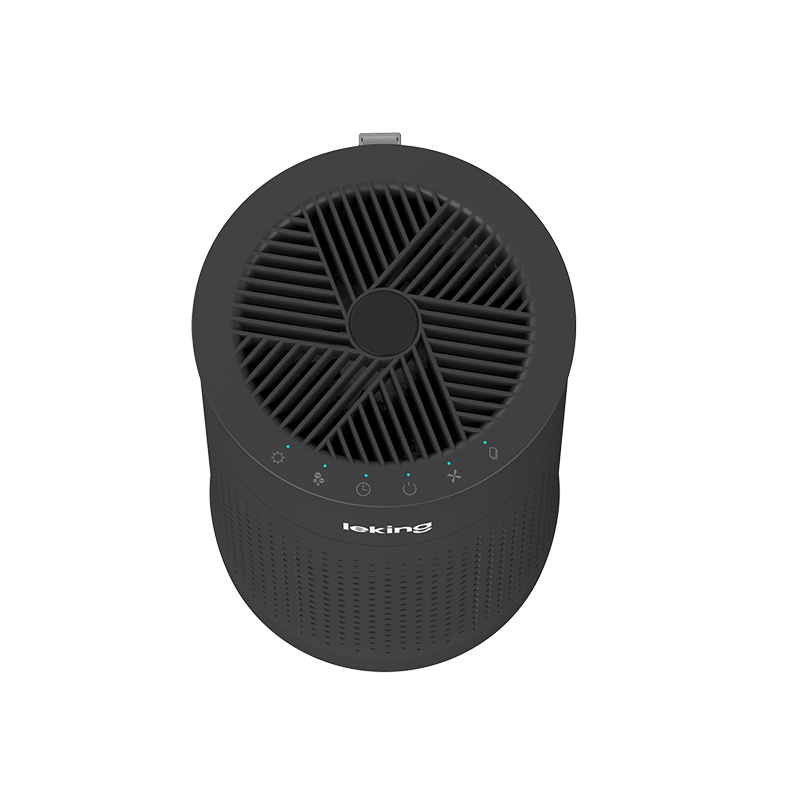Introduction:
With the increasing awareness of the impact of air pollution on our health, it is no wonder that the demand for air purifiers has skyrocketed. UVC car air purifiers have gained increasing popularity among the various types of air purifiers available. This article will provide a comprehensive guide to selecting and using UVC car air purifiers, helping you make an informed decision to protect your health and the air you breathe.
Expertise Knowledge
-
Understanding UVC Technology: UVC is a type of ultraviolet light with wavelengths between 200-280 nanometers, which is effective in deactivating viruses, bacteria, and other microorganisms.
-
Factors to Consider When Choosing a UVC Car Air Purifier: Choosing the right UVC car air purifier depends on the size of your vehicle, the number of passengers, and your budget.
-
Importance of Airflow Rate: The airflow rate measures the volume of air purified by the device per hour, and a higher airflow rate ensures more efficient air purification.
-
Benefits of HEPA Filtration: HEPA filters are highly effective in removing particles such as dust, pollen, and pet dander, significantly improving air quality.
-
Carbon Filtration for Odor Elimination: Activated carbon filters absorb and eliminate odors, leaving the air inside your car fresh and odor-free.
-
Quiet Operation for Comfort: Choose a UVC car air purifier that operates quietly to maintain a comfortable environment while driving.
Selecting the Right UVC Car Air Purifier
1. Determine Your Vehicle's Size and Needs
Consider the size of your vehicle and the number of passengers it typically carries. A larger vehicle or more passengers will require a purifier with a higher airflow rate to ensure effective purification.
2. Consider UVC Lamp Wattage
UVC lamp wattage determines the intensity of UVC light emitted, which influences the rate of microorganism deactivation. Choose a purifier with a UVC lamp wattage appropriate for the size of your vehicle.
3. Look for HEPA and Carbon Filtration
HEPA filters remove particles, while carbon filters eliminate odors. For optimal air quality, consider a purifier that combines both HEPA and carbon filtration technology.
4. Check Airflow Rate
The airflow rate measures the volume of air purified per hour. A higher airflow rate means more efficient purification, especially in larger vehicles.
5. Ensure Quiet Operation
A UVC car air purifier that operates quietly will not interfere with your driving experience. Look for models with noise levels below 50 decibels.
Using Your UVC Car Air Purifier
1. Place Properly for Optimal Airflow
Position the air purifier in an area where it can circulate air effectively throughout the car, avoiding obstructions.
2. Run Regularly for Continuous Purification
Operate the purifier regularly, even when the vehicle is not occupied, to maintain a clean and healthy air environment.
3. Replace Filters Regularly
HEPA and carbon filters need to be replaced periodically to maintain optimal performance. Follow the manufacturer's recommendations for replacement intervals.
4. Clean the UVC Lamp Periodically
The UVC lamp should be cleaned periodically to maintain its effectiveness. Follow the manufacturer's instructions for cleaning.
5. Maintain the Device for Longevity
Regular maintenance, including cleaning and filter replacement, will extend the life of your UVC car air purifier.
Benefits of Using UVC Car Air Purifiers
-
Reduced Exposure to Microorganisms: UVC effectively deactivates viruses, bacteria, and other microorganisms, reducing your exposure to harmful pathogens.
-
Improved Air Quality: HEPA and carbon filtration remove particles and odors, significantly improving the air quality inside your car.
-
Allergy and Asthma Relief: By removing allergens and dust, UVC car air purifiers can provide relief for allergy and asthma sufferers.
-
Odor Elimination: Activated carbon filters effectively absorb and eliminate odors, leaving the air inside your car fresh and odor-free.
-
Increased Comfort: Purified air free of pollutants and odors creates a more comfortable and pleasant driving experience for you and your passengers.
-
Respiratory Health Protection: UVC car air purifiers reduce exposure to harmful pollutants, protecting your respiratory health and preventing respiratory issues.
Best UVC Car Air Purifier Wholesaler
If you want to get the best UVC Car Air Purifier, but don't know how to order it, you might as well try leking. As a professional UVC Car Air Purifier wholesaler, leking can provide you with high-quality products and services. Welcome to contact us for detailed ordering information!
Authoritative Organizations and Fact-Checking
- Environmental Protection Agency (EPA): Provides information on air quality and the health effects of air pollution.
- World Health Organization (WHO): Conducts research and provides guidelines on air quality and health.
FAQ
1. Can UVC car air purifiers harm my skin or eyes?
UVC light can be harmful to the skin and eyes. Avoid direct exposure to the UVC lamp while the device is operating.
2. How often should I replace the UVC lamp?
Typically, UVC lamps should be replaced every 6-12 months, depending on usage. Refer to the manufacturer's instructions for specific replacement intervals.
3. Can UVC car air purifiers remove all types of pollutants?
While UVC car air purifiers effectively deactivate microorganisms, they may not remove all types of pollutants, such as gases or compounds emitted from electronic devices.
4. How do I know if my UVC car air purifier is working properly?
Check the UVC lamp regularly to ensure it is emitting light. You may also consider using an air quality monitor to measure the improvement in air quality after using the purifier.
5. Is it safe to use UVC car air purifiers with pets?
Yes, it is safe to use UVC car air purifiers with pets. However, ensure pets are not exposed to direct UVC light.



